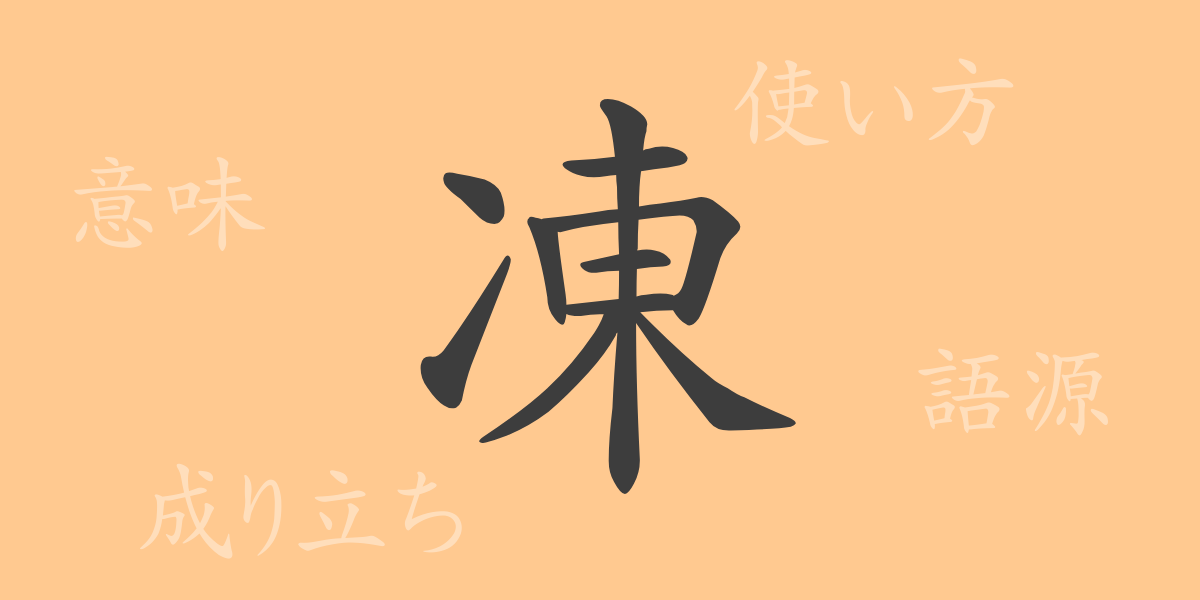On a cold winter’s night, when you exhale, a small white cloud forms and imagines it freezing in the air, we can feel the strength of the Kanji ‘凍 (とう)’ and the deep meanings behind it. The Kanji ‘凍’, commonly used in Japan, is deeply connected not only with coldness and solidity but also profoundly influences our lives and emotions. This article delves into the origins, usage, and the everyday phrases and idioms of ‘凍’, exploring the world of this character.
Origins of ‘凍 (とう)’
The Kanji ‘凍’ derives from an ancient Chinese pictograph representing the formation of ice. Originally, it depicted the process of ice forming on water, composed of the upper part representing ice ‘冰’ and the lower part ‘止’ indicating stopping the flow of moving water. Over time, ‘凍’ has come to mean not only the formation of ice but also the act of chilling and solidifying.
Meaning and Usage of ‘凍 (とう)’
‘凍’ refers to the transformation of a liquid into a solid due to low temperatures, or to describe something extremely cold. It can be used literally, as in ‘water freezes’, or metaphorically, such as ‘a heart freezes’, depicting a state of shock or profound fear.
Readings, Stroke Count, and Radical of ‘凍 (とう)’
The Kanji ‘凍’ has several readings and plays a fundamental role in Japanese language.
- Readings: On’yomi ‘トウ’, Kun’yomi ‘こおる’, ‘こごえる’
- Stroke Count: ‘凍’ consists of 10 strokes.
- Radical: The radical ‘冫’ (にすい) represents ice, used in characters related to coldness or chilling.
Phrases, Idioms, and Proverbs Using ‘凍 (とう)’
There are many idioms and proverbs that include ‘凍’, reflecting states of coldness, hardship, and emotional conditions.
- 凍結 (とうけつ) – Refers to the solidification of a liquid or the inaccessibility of funds.
- 凍死 (とうし) – Death caused by cold temperatures.
- 凍傷 (とうしょう) – Frostbite, injuries caused by freezing of the skin.
- 口が凍る – Literally ‘mouth freezes’, meaning unable to speak well due to cold.
- 手が凍る – ‘Hands freeze’, indicating difficulty in moving hands due to cold.
Conclusion on ‘凍 (とう)’
The Kanji ‘凍’ not only depicts natural phenomena but is also indispensable in describing our daily lives and emotional states. Its form and meanings evoke sensations of coldness and stiffness, while its various expressions enrich our language. The presence of ‘凍’ in our language beautifully enhances our connection to the Japanese seasons.

























